Search results11 results
COLLECTION
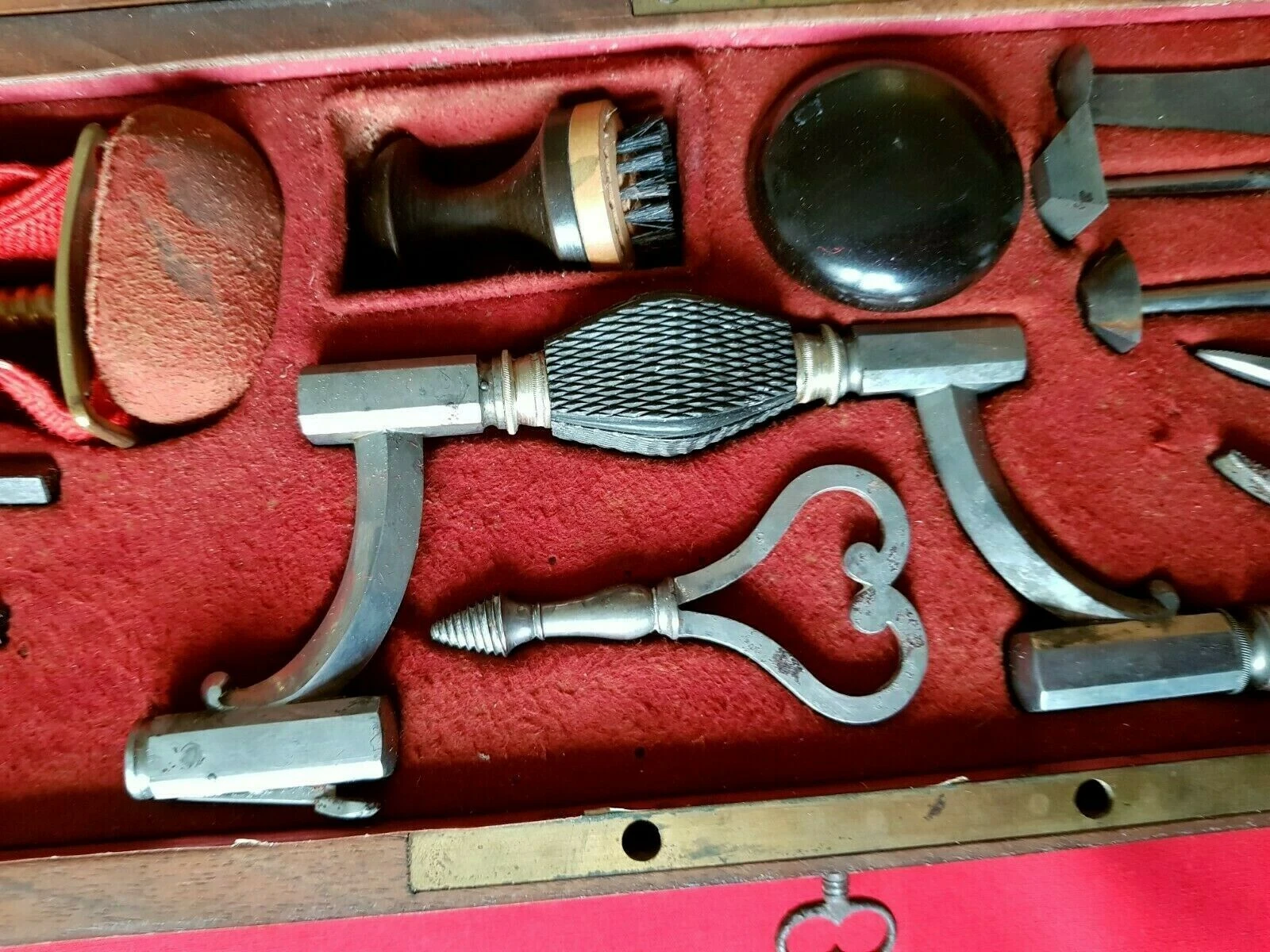
France, 19 C. 1 half
The rare French amputation kit, early 19 century, contains the typical instruments of a trauma and military surgeon, such as brace and bit cranial trephine, elevators and rugines, amputation saw, brush to clean the operative field. The case has two compartments, has original key.
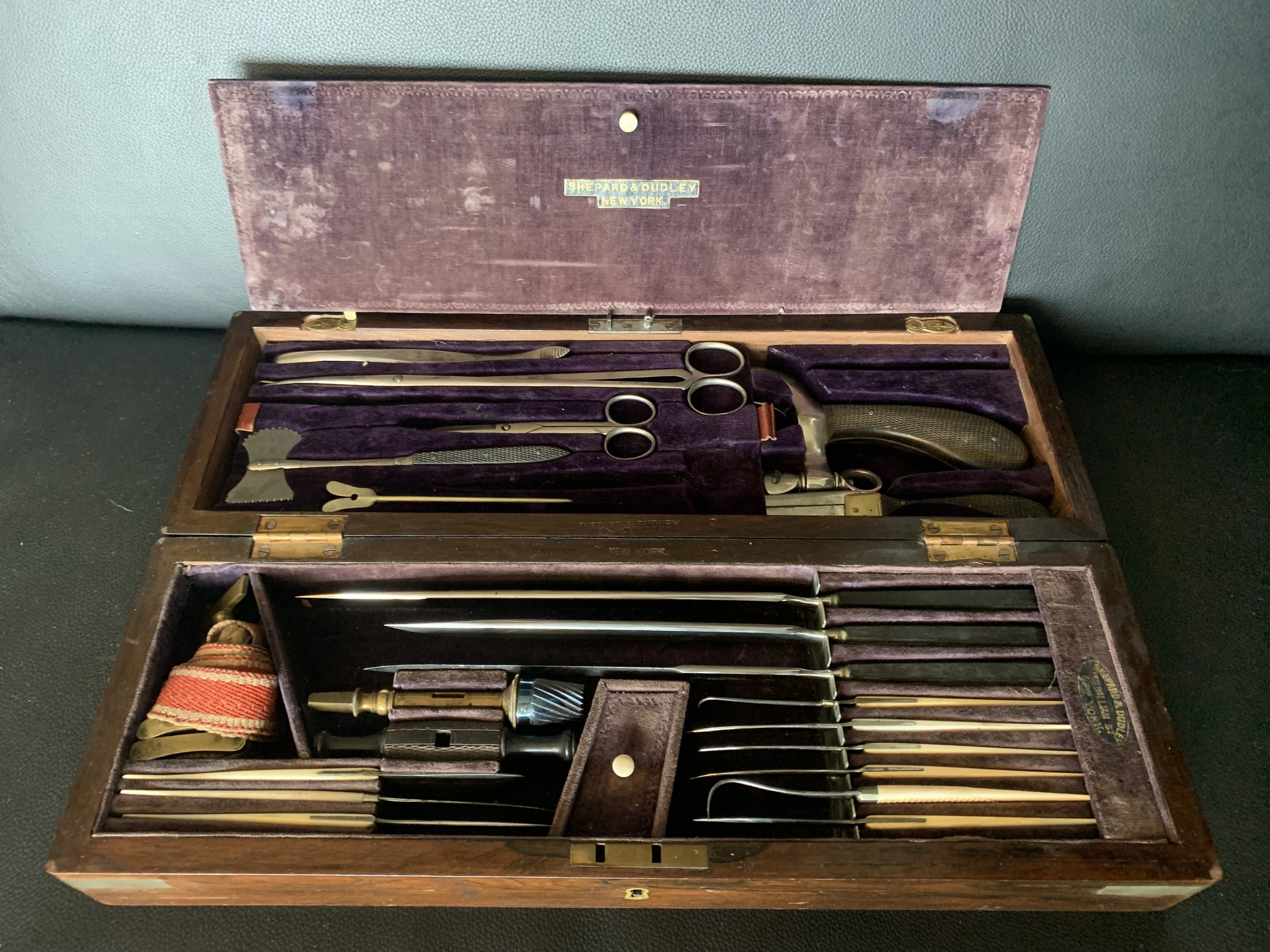
USA, 19 C. 2 half
American Amputation and trepanation cased set, by Shepard & Dudley NY, late XIX century. The wooden case contains the typical instruments of a trauma surgeon, such as amputation saw, trephine head with handle, screw tourniquet. The amputation saw and three amputation knives have ebony handles, the rest hand instruments like scalpels and hook have ivory handles. The case has two compartments lined with violet velvet. On the cover of the upper compartment, the inscription "SHEPARD & DUDLEY * NEW YORK".
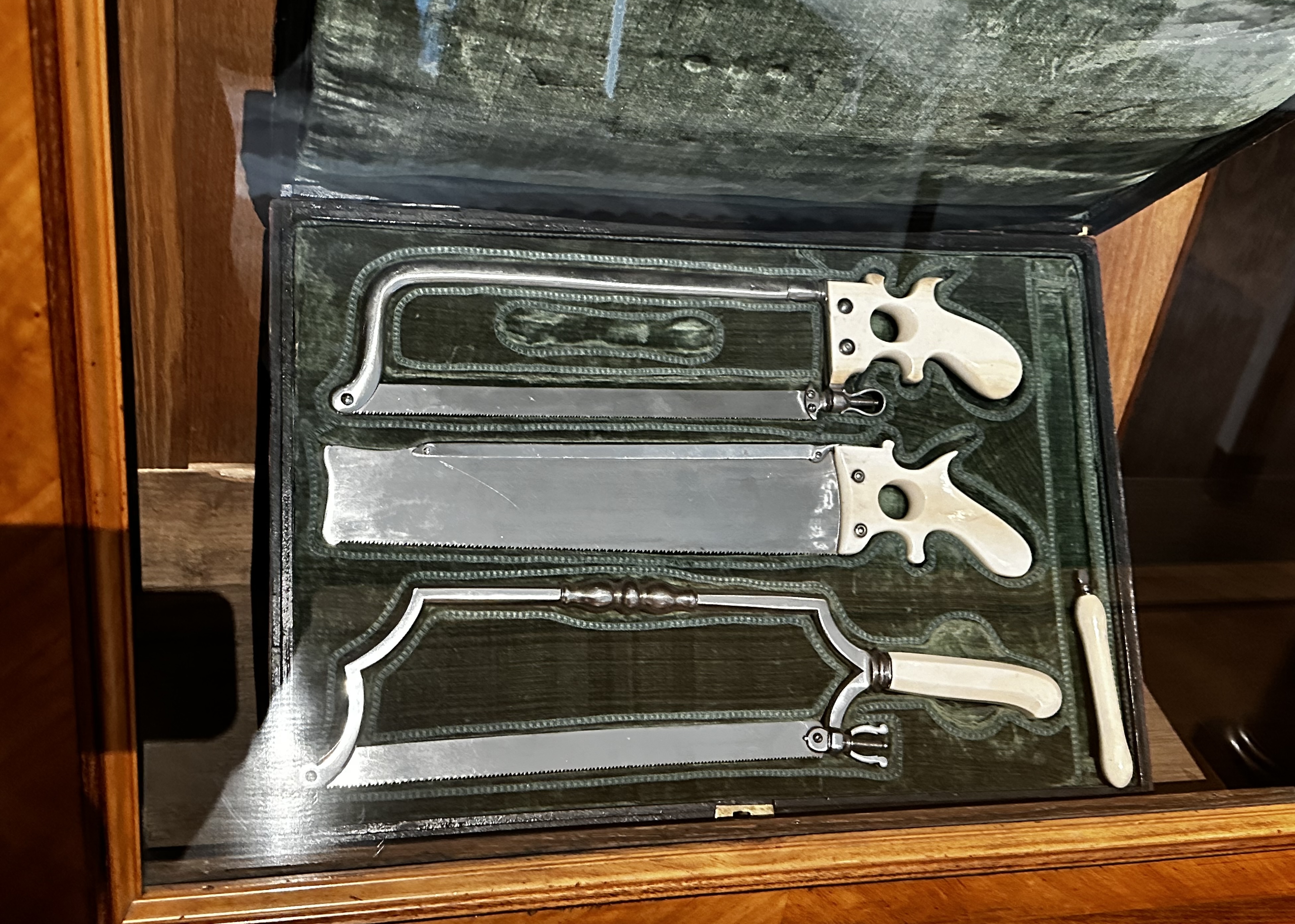
Austria, 18 C.
A collection of 65 sets of surgical instruments made by Viennese craftsman Joseph Malliard under the direction of Giovanni Alessandro Brambilla, an Italian-born Austrian surgeon eighteenth-century innovator in military surgery. Today, this collection, known as the “Instrumentarium Chirurgicum Militare Austriacum” is on display at the Josephinum Museum, Vienna
LIBRARY
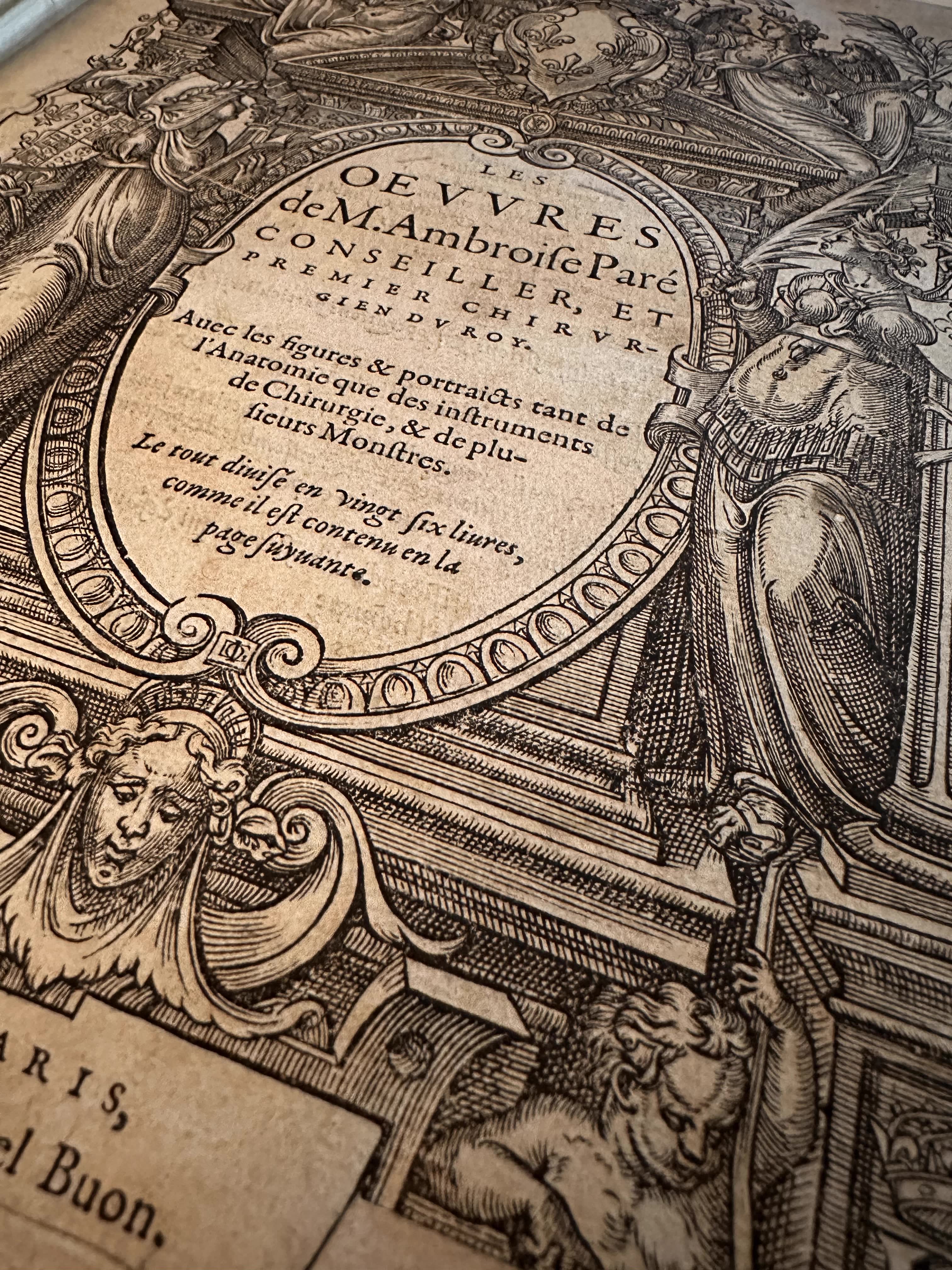
France, 16 C.
Paré, Ambroise
Paré, Ambroise, 1510?-1590. Les Œuvres de M. Ambroise Paré, conseiller et premier chirurgien du Roy. Avec les figures & portraicts tant de l'anatomie que des instruments de chirurgie, & de plusieurs monstres. Le tout divise en vingt six livres (transl. from French: The works of Mr. Ambroise Paré, advisor and first surgeon to the King. With figures & portraits of both anatomy and surgical instruments, & several monsters. The whole is divided into twenty-six books). Paris, Gabriel Buon, 1575, the first edition. This unique book is the cornerstone that laid the foundation for modern surgery in France and the rest of Europe, the most important surgical book of the 16th century.
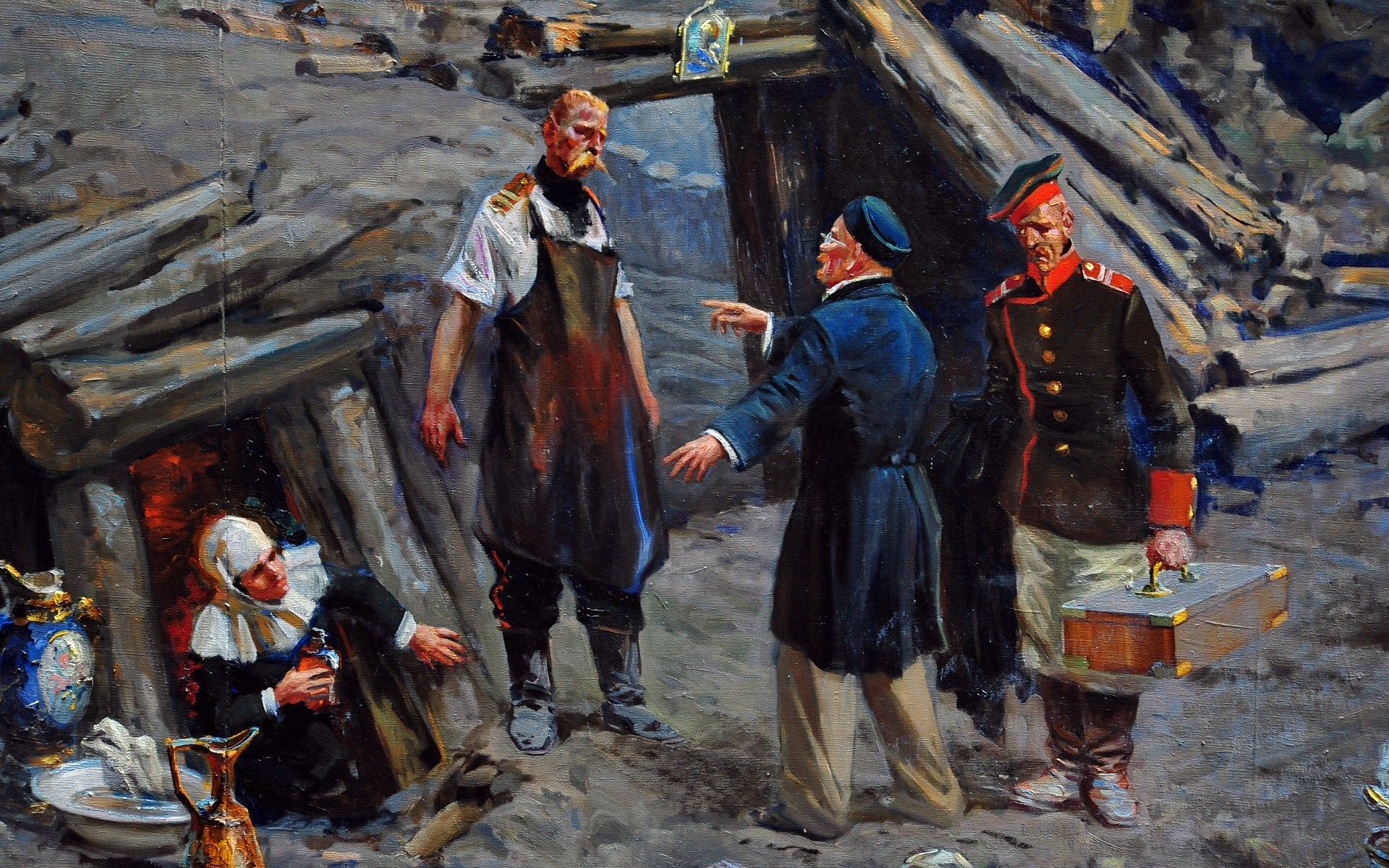
Germany, 19 C. 2 half
Pirogov, Nikolay Ivanovich
PIROGOV, Nikolay Ivanovich (1810-1881). Grundzuge der allgemeinen Kriegschirurgie nach Reminiscenzen aus den Kriegen in der Krim und im Kaukasus und aus der Hospitalpraxis (Principles of general war surgery after reminiscences from the wars in the Crimea and the Caucasus and from hospital practice), Leipzig: F.C.W. Vogel, 1864. In German language. The world's first edition
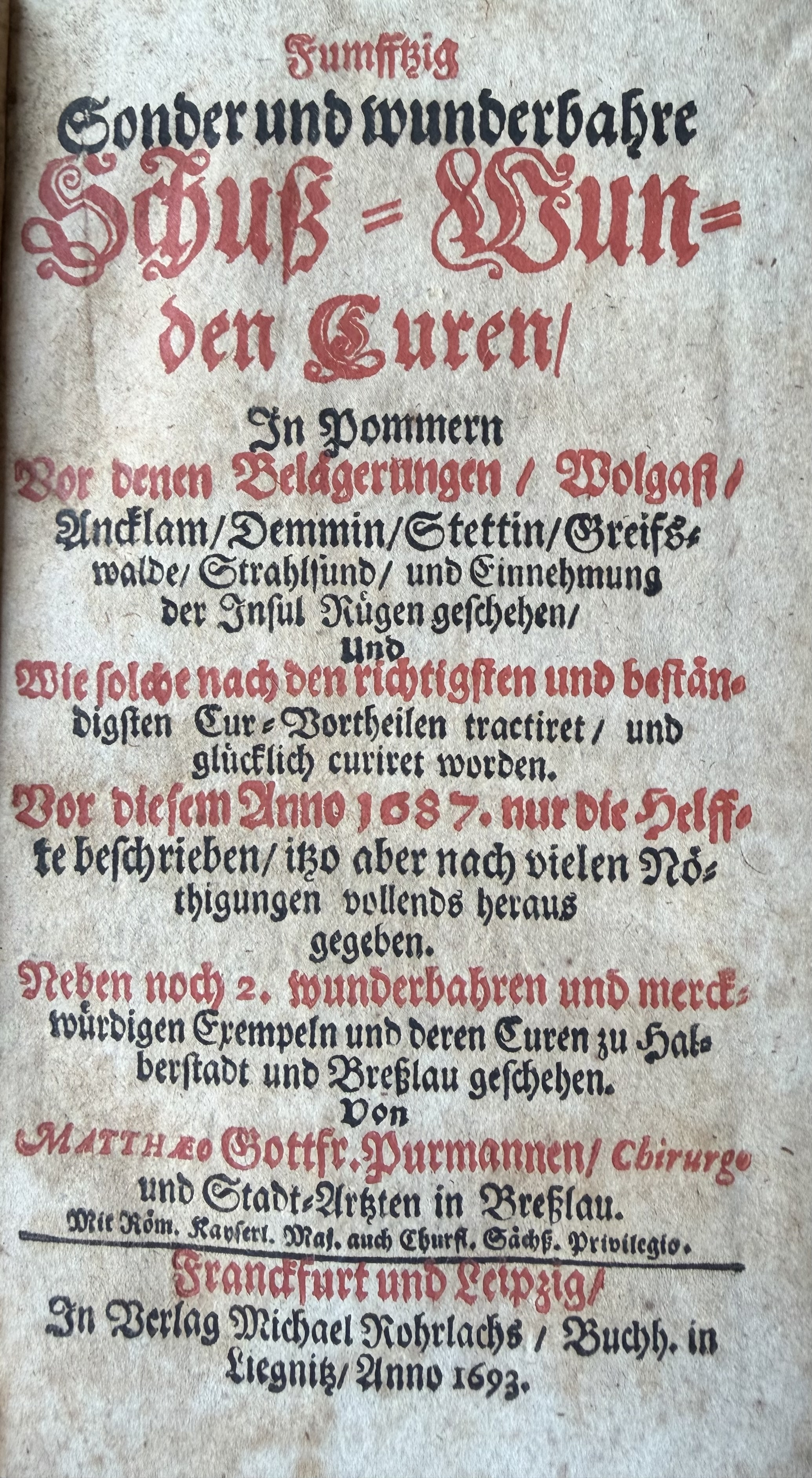
Germany, 17 C.
Fifty remarkable and extraordinary cures of gunshot wounds and other injuries in Pomerania, which occurred during the sieges of Wolgast, Anklam, Demmin, Stettin, Greifswald, Stralsund, and the capture of the island of Rügen, and how these were treated according to the most proper and reliable therapeutic methods and successfully cured... by Matthæus Gottfried Purmann, surgeon and city physician in Breslau... Frankfurt and Leipzig, published by Michael Rohrlach, bookseller in Liegnitz, 1693.
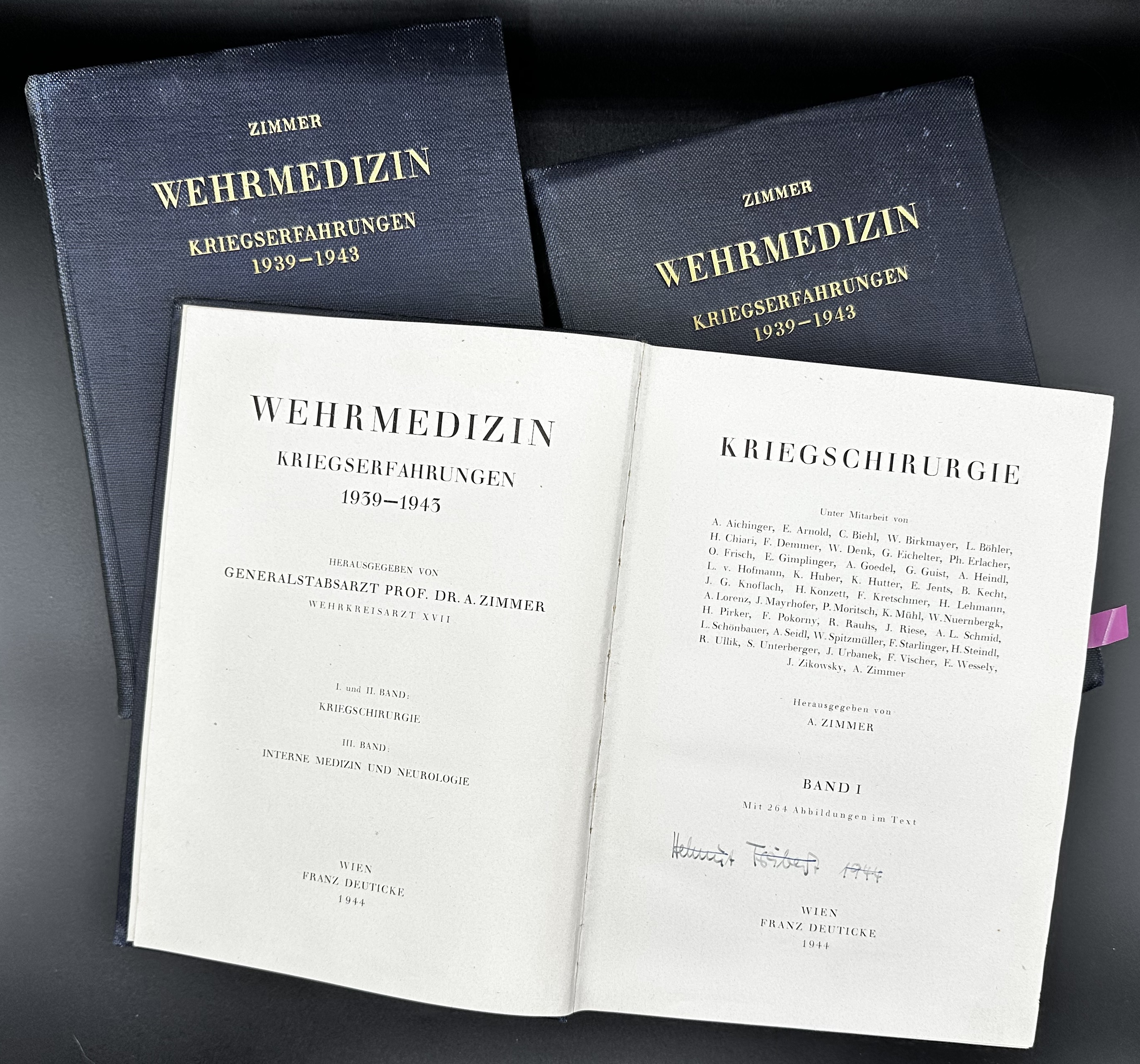
Austria, 20 C. 1 half
Wehrmedizin. Kriegserfahrungen 1939-1943 (Military Medicine. War experiences 1939–1943). Published by Franz Deuticke, Wien, 1944. In three bands. Format gr.8vo. Edited by Generalstabsarzt Prof. Dr. A. Zimmer. Volumes 1 and 2: Kriegschirurgie (Military Surgery), volume 3: Interne Medizin und Neurologie (Internal Medicine and Neurology). Zimmer, A. Wehrmedizin - Kriegserfahrungen 1939–1943, Franz Deuticke, Wien, 1944. In 3 bands
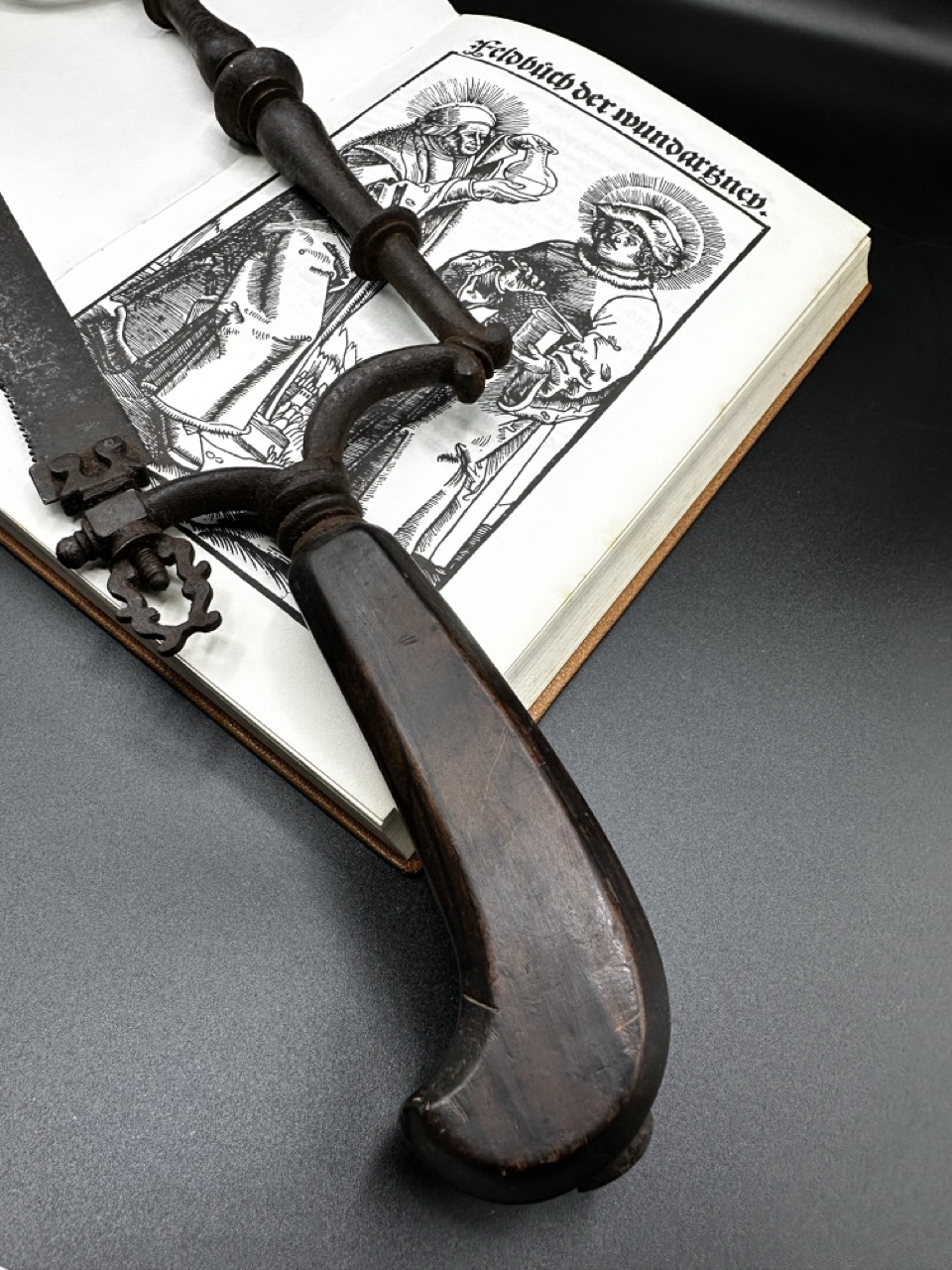
Germany, 16 C.
Gersdorff, Hans von
Hans von Gersdorff (ca. 1455-1529), Feldtbuch der Wundtartzney (German: "Field Book of Wound Medicine).
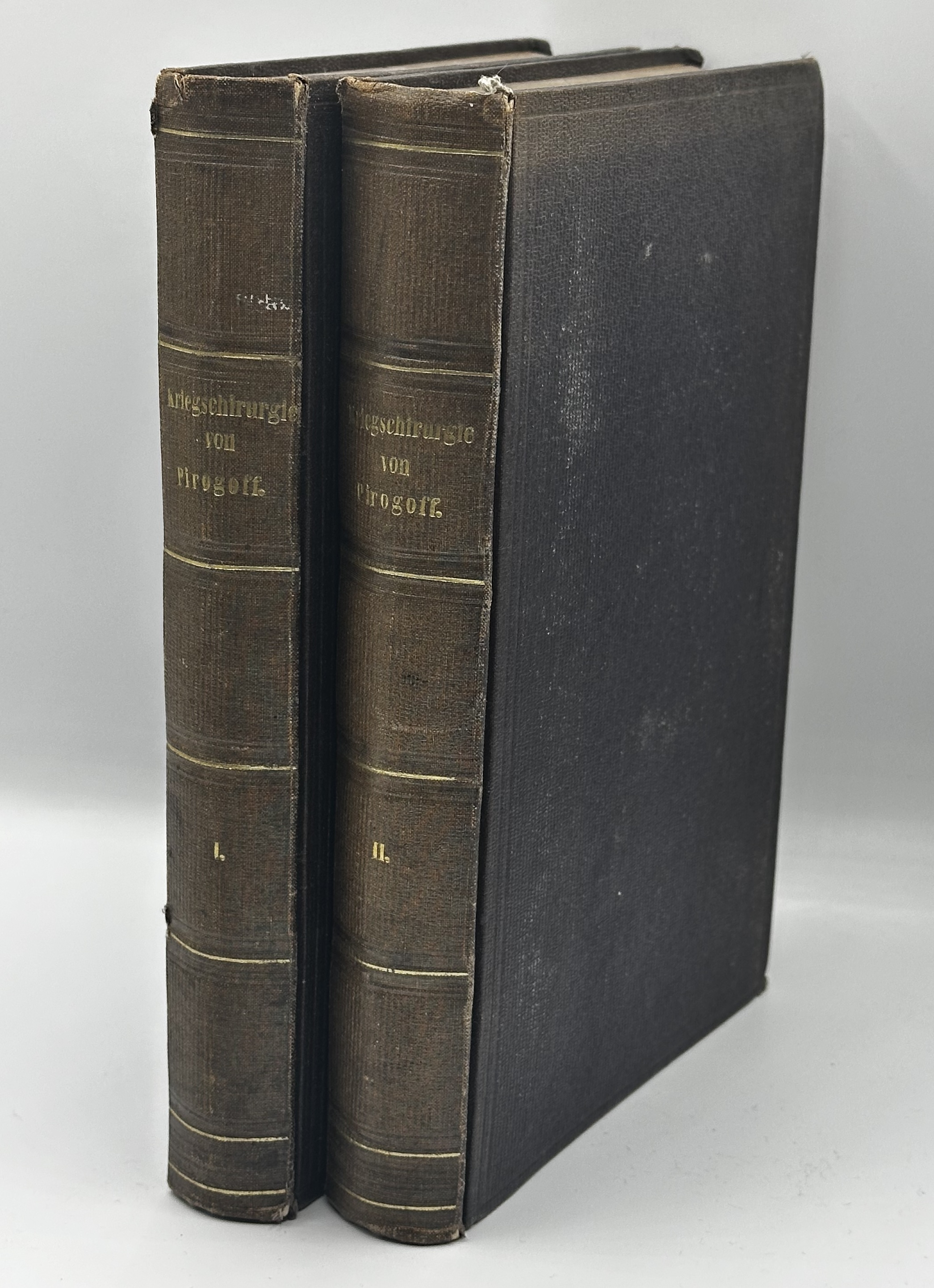
Germany, 19 C. 2 half
Pirogov, Nikolay Ivanovich
PIROGOV, Nikolay Ivanovich (1810-1881). Grundzuge der allgemeinen Kriegschirurgie nach Reminiscenzen aus den Kriegen in der Krim und im Kaukasus und aus der Hospitalpraxis, Leipzig, F. C. W. Vogel, 1864. In 2 Volumes (1: iv, 1-528 pp. and 2: 529-1168 pp., 1 nn Errata page). 'Principles of general war surgery after reminiscences from the wars in the Crimea and the Caucasus and from hospital practice' in German language. The world's first edition.
PEOPLE
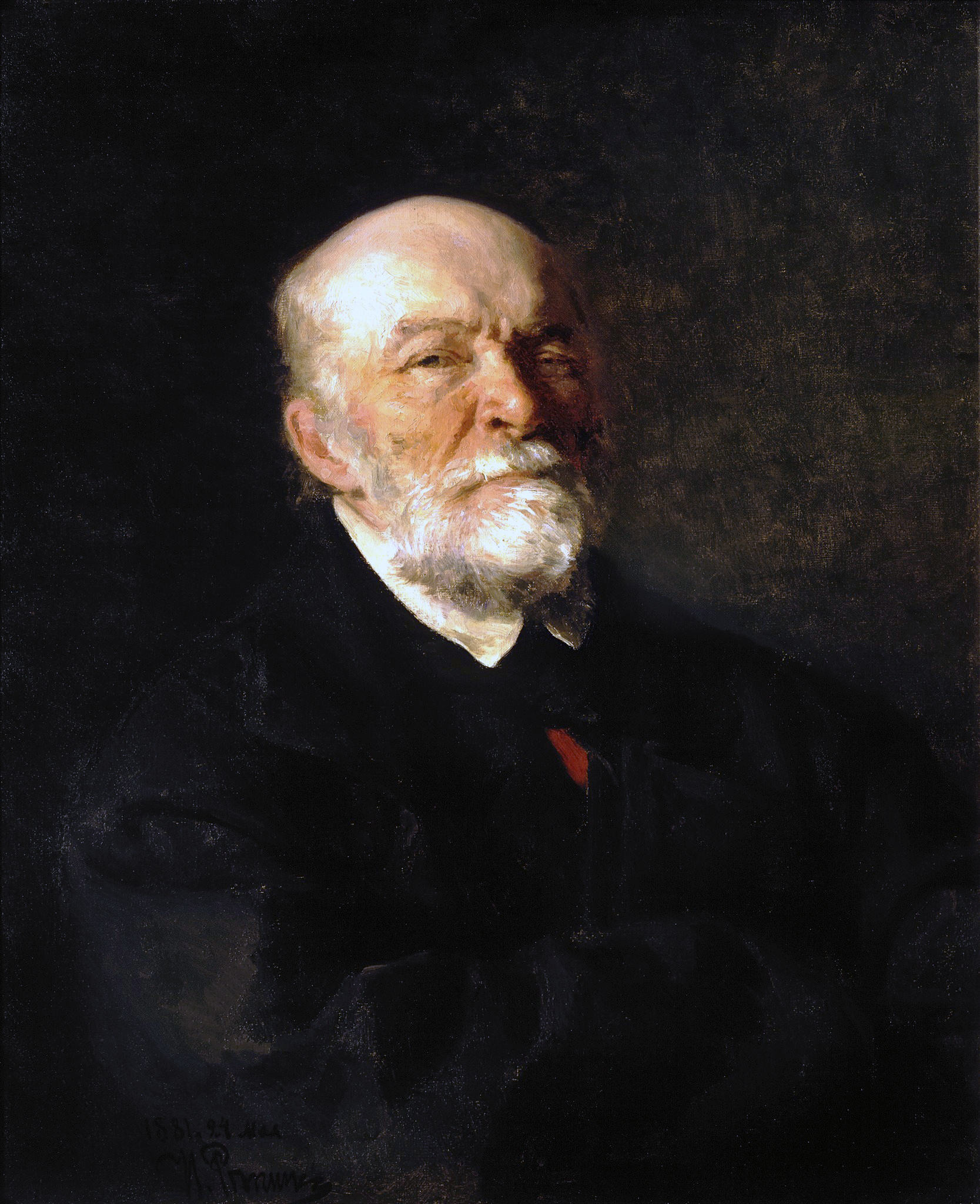
Nikolay Ivanovich Pirogov (Russian: Николай Иванович Пирогов; 25.11.1810 – 5.12.1881) was a renowned Russian surgeon, "The father of Russian field surgery" and "The father of Russian topography anatomy", scientist, professor of surgery, publicist and author. Pirogov promoted surgical anaesthesia in Russian Empire, was the first who describe some negative effects and possible complications of general anaesthesia. He was one of the first in the world introducing ether anaesthesia on the battlefield.
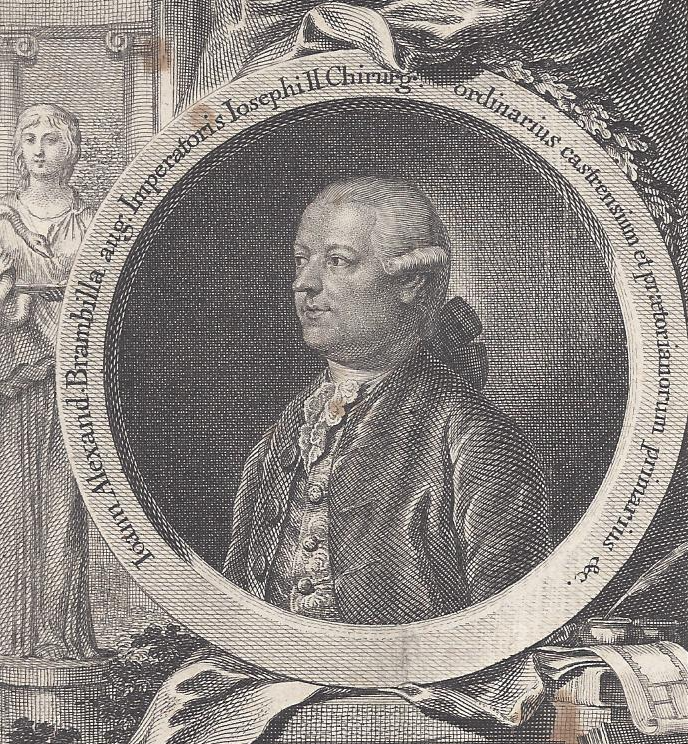
Giovanni Alessandro Brambilla, Baron di Carpiano(San Zenone al Po, April 15, 1728 – Padua, July 30, 1800, was a great Italian and Austrian surgeon, Court Surgeon of the Emperor Joseph II, founder and the first director of the Military Medicine-Surgical Academy Josephinum, Vienna, Austria